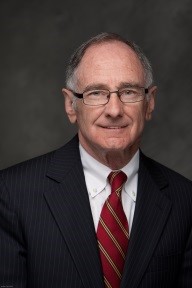The widow of an Arizona worker who died after contracting COVID-19 from a co-worker suffered a workplace “accident” that is compensable under the state’s workers’ compensation law, a panel of the state Court of Appeals ruled Thursday.
In a 3-0 decision, the appellate panel rejected arguments by an attorney for Cincinnati Insurance Co. that COVID-19 cannot be a compensable illness because “it is essentially everywhere.” The insurer pointed to decisions where claims for compensation because of valley fever were rejected because the fungal spore that causes the disease is present throughout Arizona.
The appellate panel said unlike valley fever, COVID-19 transmission can be traced from person to person.
“With person-to-person tracing possible, a workers’ compensation claimant will occasionally be able to trace exposure to COVID-19 to the workplace,” the panel’s opinion says. “When the evidence supports that COVID-19 was actually contracted at a claimant’s place of employment during work hours while on duty, and the other statutory requirements are met, we see no reason to treat COVID-19 differently than any other compensable communicable disease.”
Kenneth Zerby worked as an engineer for Western Millworks in Phoenix. The company kept its offices open during the COVID-19 pandemic but followed federal health guidelines, requiring workers to keep six feet apart and wear face masks unless they were in private offices.
Zerby was especially cautious about the disease because he took immune-suppressant medications after a 2003 kidney transplant. Nonetheless, he contracted COVID-19 on Oct. 27, 2020 and was admitted to a hospital five days later. He died on Nov. 15, 2020.
Zerby’s wife Diane filed a workers’ compensation claim, which Cincinnati Insurance disputed. She testified that her husband told her that he contracted the disease from a coworker who came into his office twice on Oct. 12 to talk to Zerby.
According to testimony, the co-worker was visibly ill when he spoke to Zerby and called out sick the next two days. The co-worker took a COVID-19 test, but returned to work before receiving the results. He eventually received a positive test result and informed his employer.
Zerby and his wife also went to dinner together with Zerby’s supervisor and his wife and brother the night before he fell ill.

Zerby’s attorney, Dennis R. Kurth, with the Snow Carpio & Weekley law firm at the time, said resolution of the case required a careful analysis of the facts. He said the administrative law judge heard conflicting testimony from both medical experts and lay witnesses during trial.
The co-worker who was suspected of transmitting the disease said he did not enter Zerby’s office but spoke through the door. A supervisor who worked in the office next door, however, said she has overheard a brief conversation between the men and believed the door had been open at the time.
A medical expert for Zerby’s widow testified that he sustained sufficient exposure during his conversations with the co-worker to contract COVID-19 and that his death was related to his employment “to a reasonable degree of probability.”
A medical expert for the employer, on the other hand, said there was not enough evidence to conclude that Zerby contracted the disease during his conversations with the co-worker. He said it requires at least 15 minutes of direct contact with an infected person to contract the disease unless that person is coughing and sneezing.
Kurth said the employer’s medical expert was clearly not credible. He said on cross examination he asked the doctor where he had learned that 15 minutes of contact is required to catch COVID-19.
“He never could answer and he got smart-Alecky,” Kurth said. “He said, ‘If you pay me, I can look it up.'”
The co-worker suspected of transmitting the disease didn’t help the employer’s case either, Kurth said. He testified during a pre-trial deposition that he had no idea how he contracted COVID-19. Kurth said he checked the man’s Facebook page and introduced at trial photographs of him attending Arizona Bike Week, a convention for motorcycle enthusiasts that was held in Scottsdale from Oct. 7-11, 2020.
The co-worker also said during the deposition that he had never had a conversation with Zerby, Kurth said. But after a supervisor testified that she had overheard the two men talking, the co-worker admitted they had spoken, but only briefly.
Kurth said the appellate panel closely followed the law. According to the panel’s opinion, the Arizona Supreme Court first ruled that a disease can be a compensable workplace accident in 1943 if the claimant can show a direct connection between the illness and work. Kurth said another long-held rule requires appellate courts to accept decisions by the trial court about the credibility of witnesses.
“They have to give deference to the findings of the ALJ,” he said. “This case is based on conflicts in the evidence. The law is that the ALJ has full discretion in these decisions. This was a heavily fact-intensive case.”
Kurth acknowledged, however, that he has some concerns about the employer appealing the decision. In 2016, Arizona Gov. Doug Ducey signed legislation that added two, in Kurth’s words, “extremely conservative” justices to the state Supreme Court, bringing the total number to seven. He said he’s worried that the expanded court may not uphold long-standing precedents and overturn the appellate court’s decision.
“I’ll fight like the devil to stop them from doing it,” Kurth said.
R. Todd Lundmark, the attorney who represented Cincinnati Insurance, said through an assistant that no decision has been reached as of late Thursday on whether to appeal the case. The assistant said Lundmark declined any further comment.
Was this article valuable?
Here are more articles you may enjoy.


 Tesla’s Austin Robotaxis Report 14 Crashes in First Eight Months
Tesla’s Austin Robotaxis Report 14 Crashes in First Eight Months  Explosive Wildfires Surge Through Oklahoma Panhandle and Kansas
Explosive Wildfires Surge Through Oklahoma Panhandle and Kansas  ‘Structural Shift’ Occurring in California Surplus Lines
‘Structural Shift’ Occurring in California Surplus Lines  UK Floods Raise Specter of ‘Mortgage Prisoners’ Across Banks
UK Floods Raise Specter of ‘Mortgage Prisoners’ Across Banks 